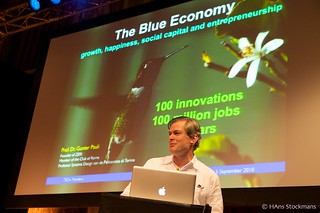
There are some key differences between conference facilitators and conference speakers. In general, a facilitator has a broader oversight of a whole conference, and is expected to take on a range of different roles, while the speaker is more specialist. Both, however, can be hired independently, and can liaise to ensure that the conference’s theme and purpose is as clear as possible. A facilitator is typically hired by a conference organiser or business to help with the structuring of the event, while a speaker is brought in for their expertise, and their status in delivering a keynote. More detail on the differences between the two roles can be found below:
Conference Facilitator Responsibilities
A facilitator is like an organiser, in the sense that they can be hired as a conference expert to work with a team of organisers. Doing so is often recommended if the conference organisers also have to work as part of a business, and don’t necessarily have the time to cover all aspects of a busy conference. In this context, the facilitator helps to draw up an agenda, and works with the organisers to prepare briefs and structure workshops, while helping to best market an event.
In terms of the day, or days of the conference itself, a facilitator can help to lead workshop discussions, and can be on hand to deal with any outstanding IT or health and safety issues. A facilitator may also deliver an opening address, and even a keynote speech in some cases. The key difference between a facilitator and a speaker consequently comes down to having someone who’s remit covers a range of different features, assuring quality control for both content and delivery. Facilitators can also specialise in sales conferences and leadership events, or can be more generally able to deliver a conference.
What Does a Speaker Do?
A conference speaker has a more specialised role and set of responsibilities than a facilitator. The speaker is usually expected to act as an expert keynote, giving a speech of an hour or more on a subject related to the theme of the conference. Speakers are typically provided with a brief, and liaise with organisers and a facilitator to ensure that their content is relevant. A speaker is generally expected to be able to adapt their performances to specific conference requirements, and to be able to take questions at the end of their speech. Speakers may also participate in workshops, or can be made available to sign copies of their books.
Relationship Between the Two
It is important to note, however, the relationship between a conference facilitator and a speaker. A facilitator can work with a speaker to work out the best way to introduce them, and to make sure that their speech works well in the context of the rest of the conference. The facilitator can also help to deal with any last minute problems, and can deal with the speakers’ needs during the conference. Having an expert facilitator and a speaker on the same page is therefore crucial to building a successful conference.
Citations:
- cc licensed ( BY NC ND ) flickr photo shared by HAns Stockmans – stockmansvision
Patrick Hegarty writes about motivational speakers, rapport building, effective speech making, and relationship building. For more information about speakers, he recommends Speakers Corner where you can find some world class business speakers.

